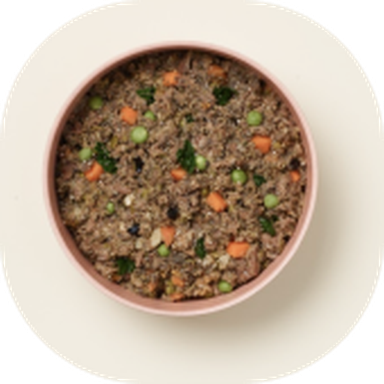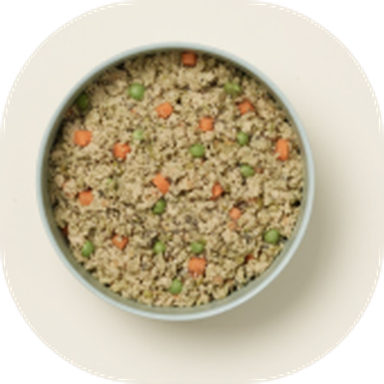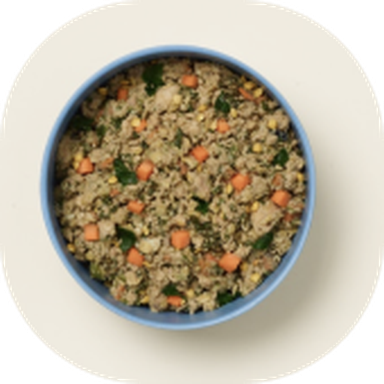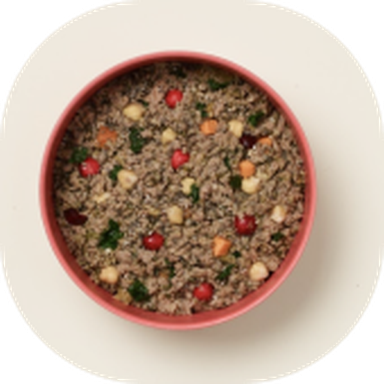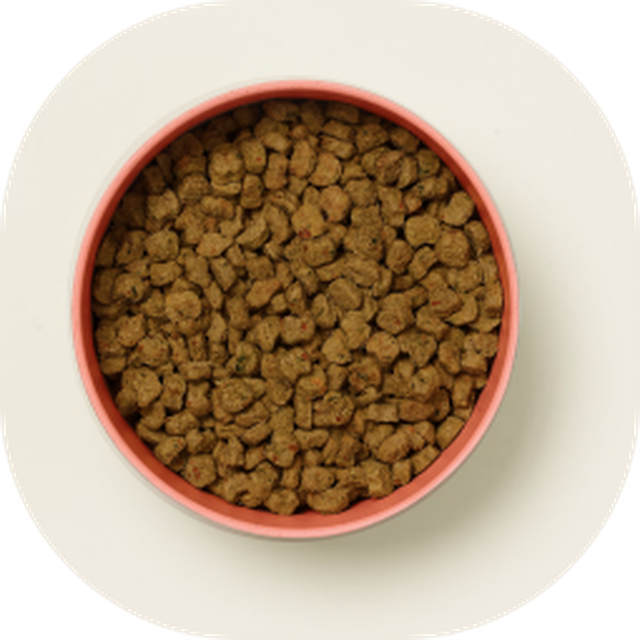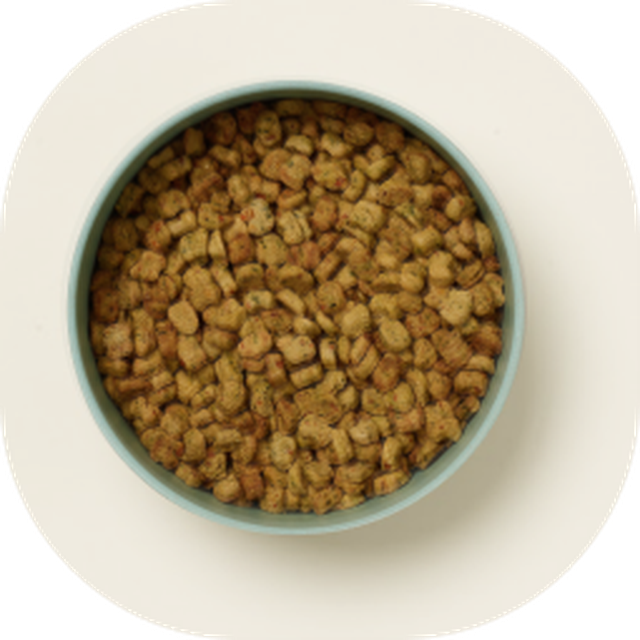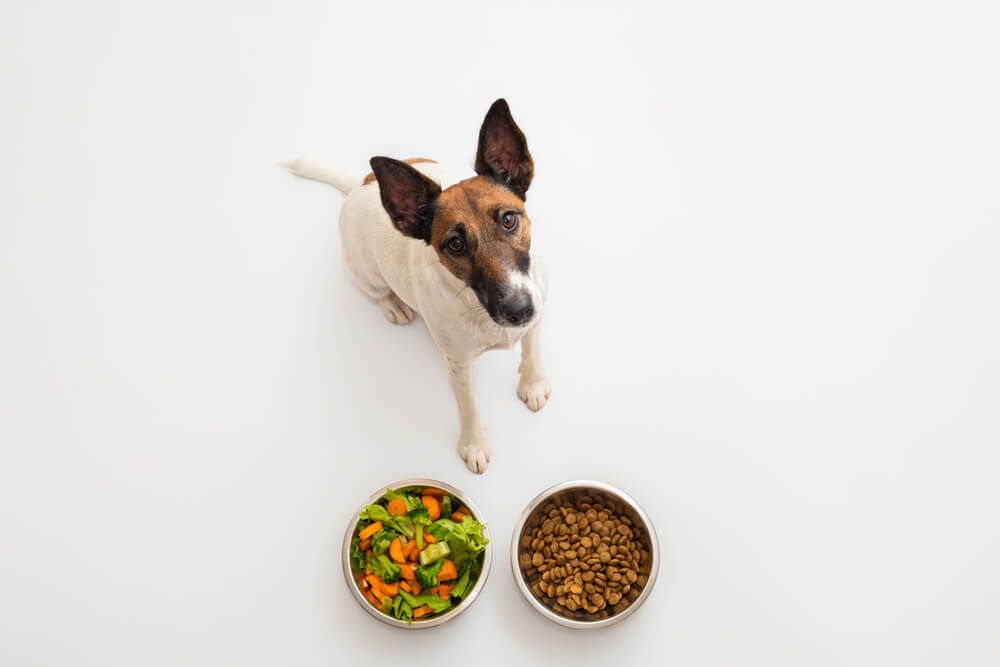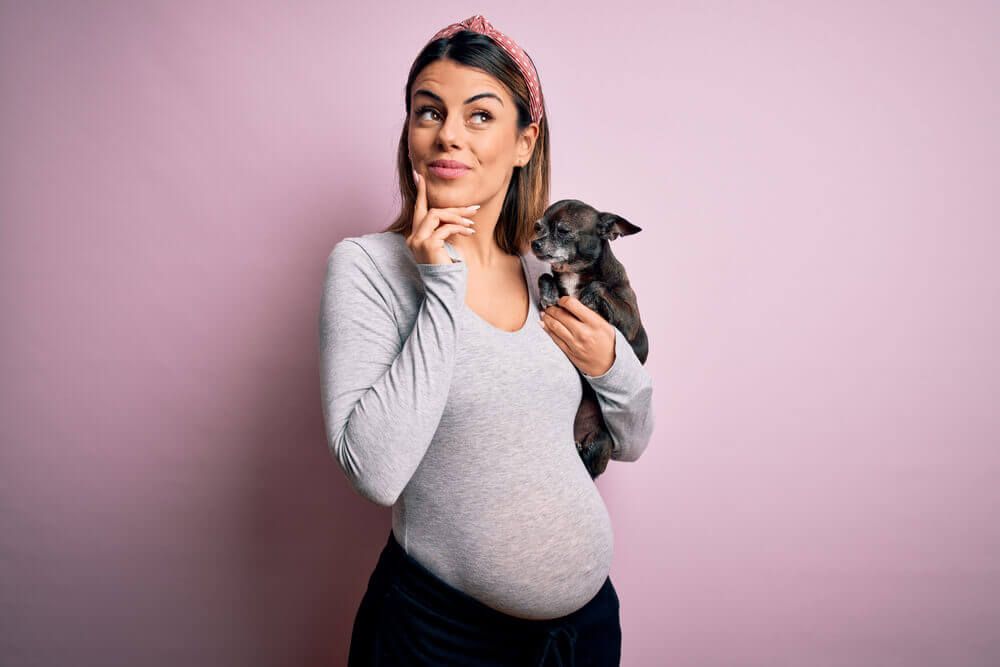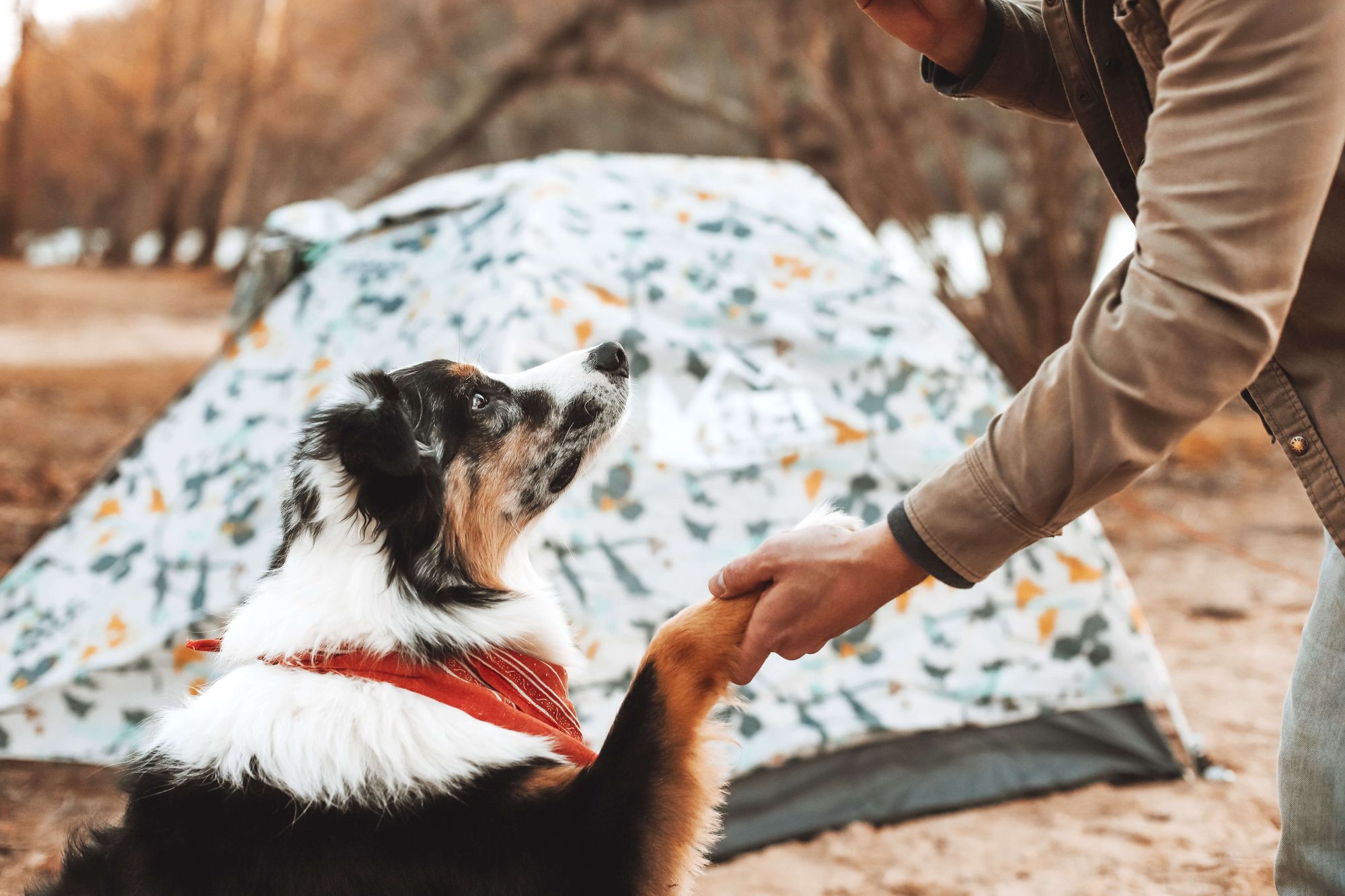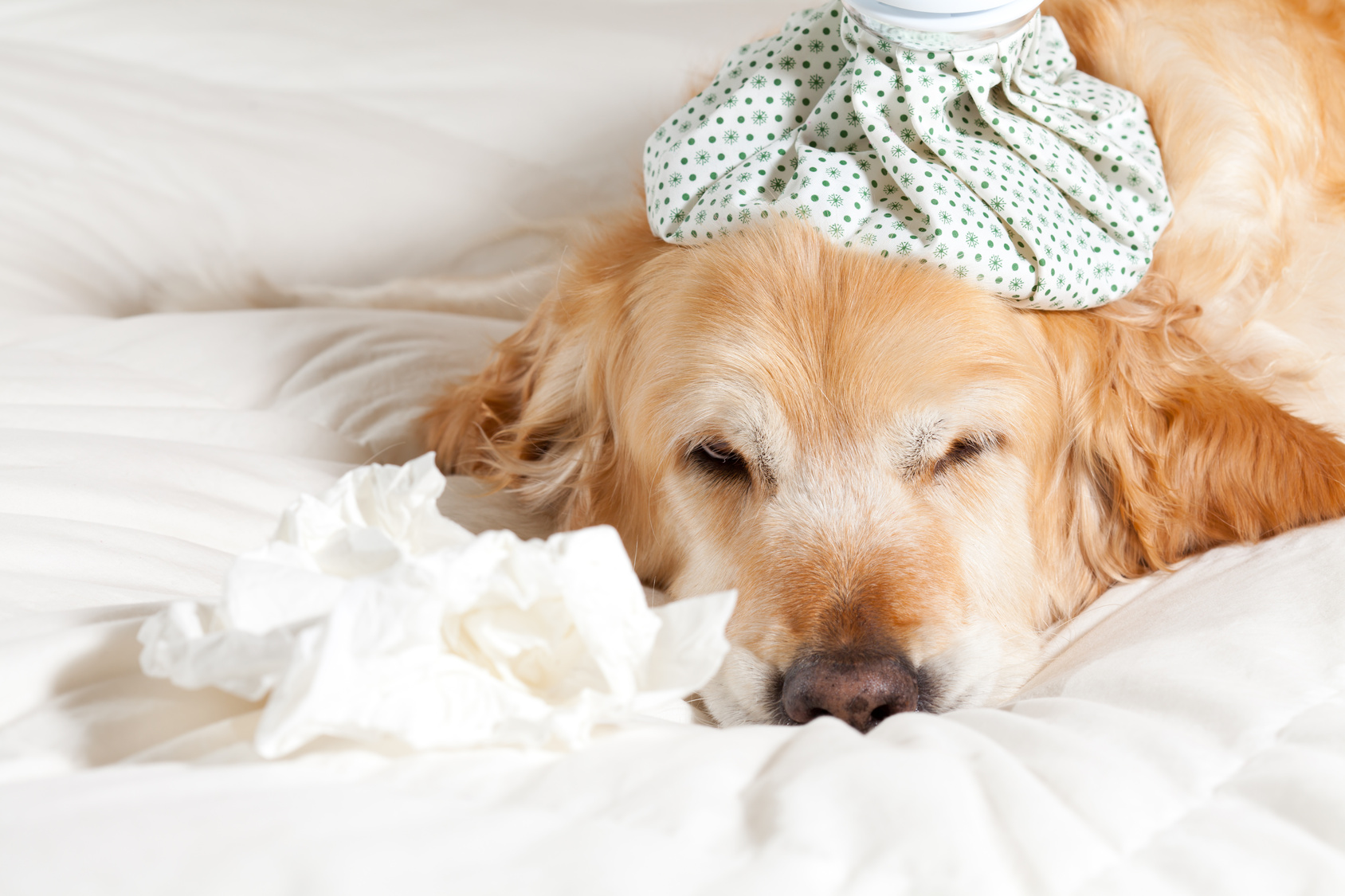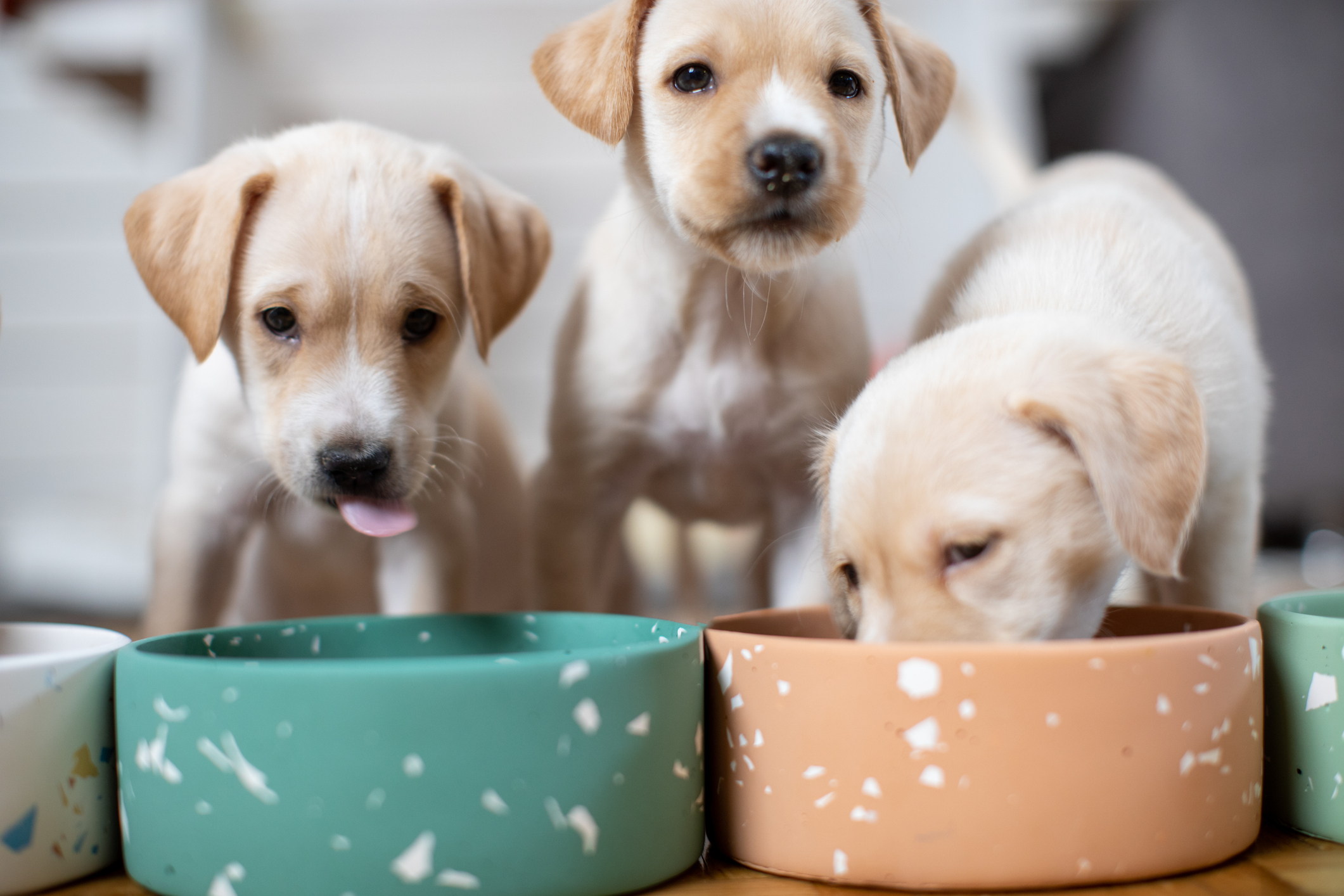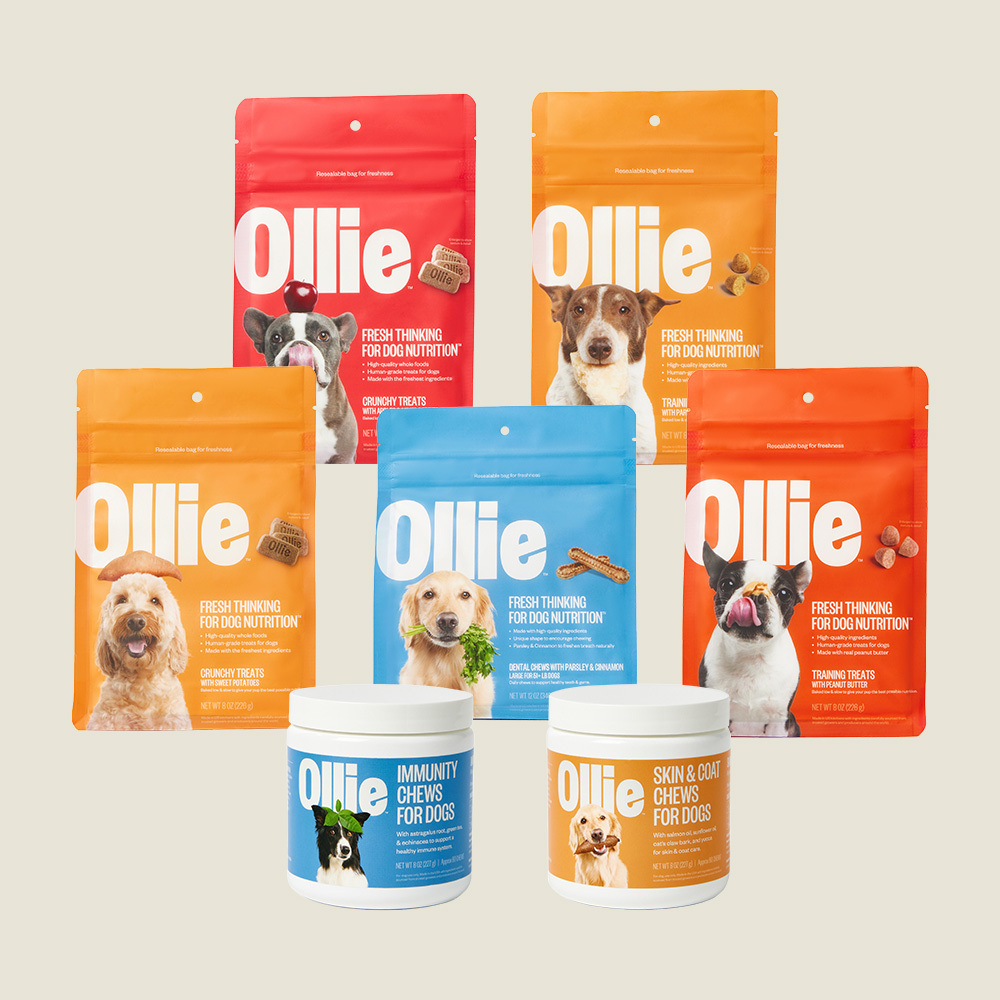Hey Ollie blog readers! We’re offering you an exclusive 60% OFF your starter box! Try now!
As the days get shorter and colder we (and our pups) tend to spend more time indoors. You might notice that in the cooler weather you change your diet to heartier meals like soups, stews and other hot meals. You may also notice that between the limited outdoor time and the busy holiday season you pack on a few extra pounds of winter weight.
What about your pup? They may gain some winter floof in the form of additional layers of coat, but do they also put on a few pounds as the months get colder and the days get shorter? Should you put your pup on a winter diet? We looked to an expert to weigh in!
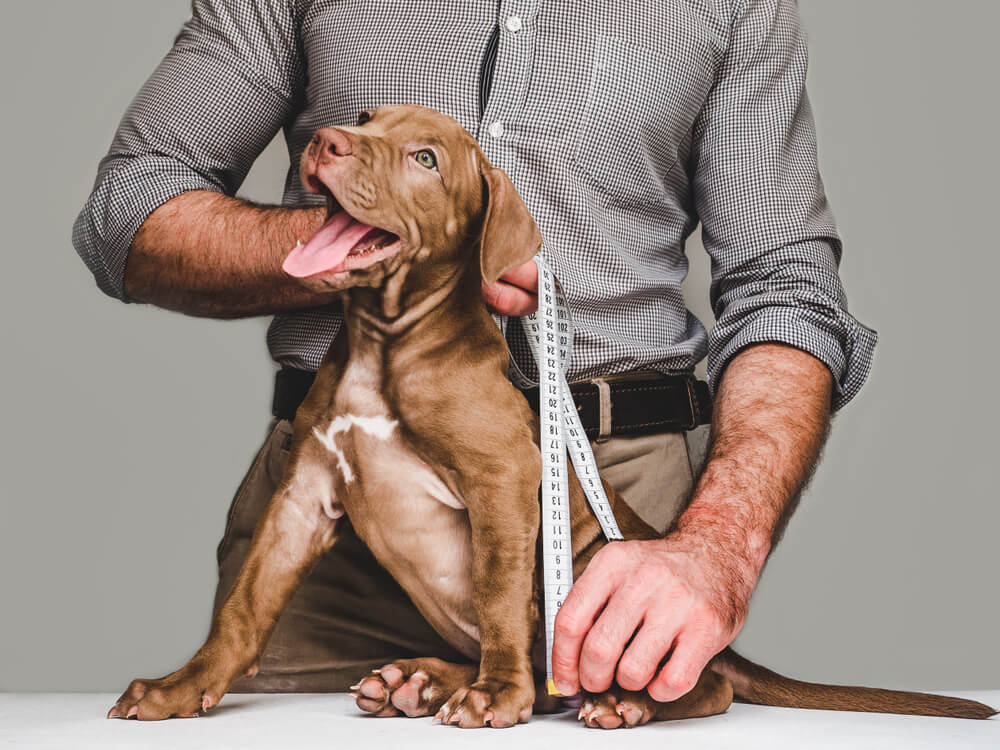
Use your pup’s body condition score as a guide to their winter diet
According to Dr. Ken Tudor, “Some dogs need extra calories to support the extra energy they need to stay warm.” If your pup is spending time outdoors, they may need some extra calories to help them keep their energy up so they can stay nice and toasty. Dr. Tudor says “Studies suggest that dogs subject to low temperature exposure need two to three times the normal calories as they need at a more moderate temperature.”
While calories are important, the composition of your pup’s food is also worth considering. Dogs who are subject to the cold also have their metabolism altered. Their bodies prefer to use fat instead of glucose for fuel. This means that your pup who is spending more time in the cold should have a diet that is higher in fat through the winter months.
Other pups become more sedentary in the colder months and don’t get as much outdoor time. While exercise is still important for these dogs, they may enjoy upping their indoor activities and keeping the outdoor time limited to brief potty breaks.
To determine if you need to adjust your pup’s diet, Dr. Tudor recommends looking at your pup’s Body Condition Score. This scoring system is similar to the Body Mass Index used for humans. However, for dogs there are two scoring systems, one system runs from 1 (severely underweight) to 9 (morbidly obese) the other runs from 1 (severely under weight to 5 (morbidly obese). If your pup is a 4 or 5 out of 9 normally (optimal body condition) and is a 6 or higher come colder weather, you might want to talk to your vet about reducing your pup’s caloric intake to keep them in the 4-5 range.
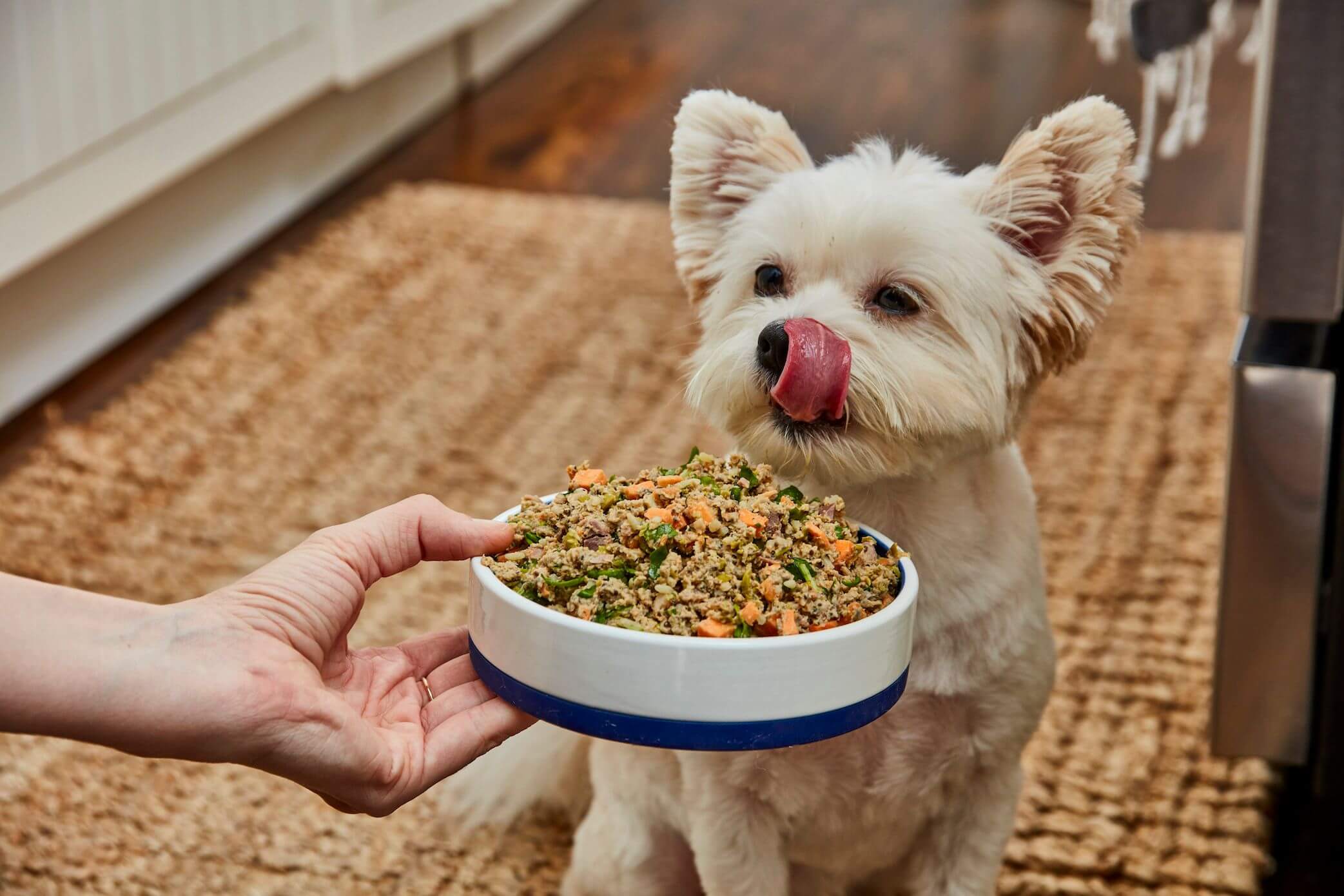
When should you increase your pup’s caloric intake in the cold weather?
If you notice your pup’s body condition is trending towards a 3 out of 9, you should talk to your vet about feeding your pup more.
If you are raising a very active dog who loves being out in the cold weather you may want to proactively give them a bit more food and see how they respond. If your pup is using those extra calories to dig in the snow, or enjoy a winter hike, they’ll probably be grateful for the extra fuel.
In general, active dogs require more calories than their more sedentary counterparts but if your active dog hates being out in the cold, this may not be the case anymore come winter.
The bottom line
At Ollie, we work hard to keep your pup healthy and nourished in any season. Our four delicious Recipes contain gently cooked human-grade ingredients. Our veterinary nutritionists help us balance the fat, carbohydrates and proteins to make the best meals for your pup.
You may need to adjust the serving sizes for the season and your pup’s activity level. You can contact our canine support center with any questions about changing the frequency or portion sizes for your meals. We are very happy to help with changes to the order, but we can’t provide nutritional advice for your specific pup – so you’ll want to chat with your vet too!
While keeping your pup at a healthy weight is really important, there are other things you want to watch for in the winter. Your pup’s overall health and wellness needs may also change with the seasons. In the colder weather you still need to make sure your pup is adequately hydrated and watch out for things like excessive licking or itching that could be related to dry skin or irritants like rock salt used to keep the sidewalk and roads from getting too slippery!
The Ollie blog is devoted to helping pet parents lead healthier lives with their pups. If you want to learn more about our fresh, human-grade food, check out MyOllie.com.
Tagged As:

The nutrition your dog needs,
the food they want.

Enjoying our articles? Subscribe our Newsletters and get new articles directly to your inbox
You might also like
20 June 2024
6 MINS READ
When to Switch Your Puppy to Adult Dog Food
Your puppy’s life is filled with milestones, including the transition from puppy to adult dog food. We explore when to make the switch and provide helpful tips.
by Ollie Pets
11 October 2023
5 MINS READ
Risks of Home Cooking for Your Dog
Although home cooking for your pup sounds like an intuitive and heartwarming way to serve up optimal health through fresh whole ingredients, there are many things you need to know about homemade f…
26 September 2023
7 MINS READ
How to Choose The Perfect Treat for Your Dog
Treats have a place on your dog’s food pyramid, but they should be given with care and consideration.
